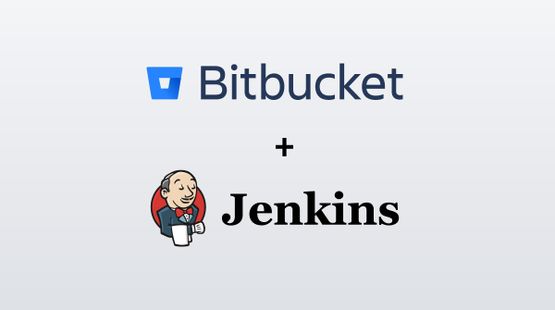In the realm of enterprise solutions, ServiceNow and Workday stand out as two industry giants, each excelling in its respective domain. ServiceNow is renowned for its prowess in IT service management (ITSM), while Workday specializes in human capital management (HCM) and financial management. This blog post undertakes a comprehensive comparison of ServiceNow vs. Workday , delving into their features, advantages, and ideal use cases. Whether your focus is on optimizing IT operations or efficiently managing your workforce, this guide will aid you in making an informed decision tailored to your organization’s unique needs.
ServiceNow: Elevating IT Service Management
ServiceNow is a cloud-based platform synonymous with ITSM, offering organizations the power to automate and streamline their IT processes and services. Here are some of its key features:
Key Features of ServiceNow
- Service Management: ServiceNow provides an all-encompassing IT service management suite, covering incident management, problem management, change management, and more.
- IT Operations Management: This platform equips businesses with tools to monitor and optimize IT operations, ensuring minimal downtime.
- Automation: ServiceNow excels in workflow automation, empowering organizations to automate routine tasks and reduce manual intervention.
- Service Catalog: Organizations can create customized service catalogs, simplifying service requests and resource provisioning for employees.
- Integration Capabilities: ServiceNow seamlessly integrates with a wide array of third-party tools and systems, enhancing adaptability.
- Reporting and Analytics: Advanced reporting and analytics features offer insights into IT performance and areas for improvement.
ServiceNow’s strengths include its ITIL compliance and ability to centralize IT service management, making it the preferred choice for organizations seeking to optimize their IT operations.
http://informationarray.com/2023/09/29/servicenow-vs-devops-a-comprehensive-comparison/
Workday: Transforming HR and Financial Management
Workday, conversely, is a cloud-based HCM and financial management platform, with a primary focus on efficiently managing an organization’s workforce and financial resources. Here are some of its core features:
Key Features of Workday
- Human Capital Management (HCM): Workday offers a comprehensive suite for HR management, including recruitment, talent management, payroll, and workforce planning.
- Financial Management: It equips organizations with tools for financial planning, accounting, procurement, and expense management.
- Reporting and Analytics: Workday provides robust reporting and analytics capabilities, facilitating data-driven decision-making.
- Integration: Workday boasts integration capabilities with various third-party systems and applications.
- Employee Self-Service: Employees can access and manage their HR-related information, enhancing the overall employee experience.
Workday excels in streamlining HR and financial management processes, positioning it as the top choice for organizations aiming to optimize these crucial areas.
ServiceNow vs. Workday: A Comprehensive Comparison
To offer a well-rounded view, let’s present a side-by-side comparison of ServiceNow and Workday:
| Aspect | ServiceNow | Workday |
|---|---|---|
| Focus | IT Service Management and Automation | Human Capital Management (HCM) and Financial Management |
| Core Features | Service Management, IT Operations, Automation | HCM, Financial Management, Reporting, Analytics |
| Use Cases | Managing IT services, ITIL compliance | Workforce management, financial planning, HR processes |
| Integration | Supports third-party integrations | Integrates with various systems and platforms |
| Automation | Workflow automation, process optimization | HR process automation, financial planning and forecasting |
| Deployment | Cloud-based | Cloud-based |
Frequently Asked Questions (FAQs)
1. Can ServiceNow and Workday be used together?
Indeed, ServiceNow and Workday can complement each other effectively. ServiceNow caters to IT service management, while Workday handles HR and financial processes. Integrating both platforms can create a comprehensive solution for IT, HR, and financial operations.
http://informationarray.com/2023/09/28/servicenow-vs-oracle-a-comprehensive-comparison/
2. Is Workday only suitable for large enterprises?
Workday is versatile and accommodates organizations of all sizes, ranging from small businesses to large enterprises. Its scalability and adaptability make it an ideal choice across various industries and company sizes.
3. What are the pricing models for ServiceNow and Workday?
ServiceNow and Workday both offer flexible pricing models that hinge on factors like user numbers, features, and deployment choices. For precise pricing details, it is advisable to contact the respective vendors directly.
4. How do I choose between ServiceNow and Workday for my organization?
The choice hinges on your organization’s specific needs. ServiceNow excels in optimizing IT service management, whereas Workday is a top contender for HR and financial management. It is crucial to evaluate your operational requirements and objectives when making a decision.
ServiceNow and Workday are formidable platforms, each catering to distinct aspects of organizational management. ServiceNow specializes in IT service management and automation, making it a top choice for organizations aiming to streamline IT processes. Workday, on the other hand, focuses on HCM and financial management, empowering organizations to efficiently manage their workforce and financial resources.
To make the right choice for your organization, undertake a meticulous evaluation of your specific needs, industry, and long-term goals. Additionally, consider the potential benefits of integrating both platforms to create a holistic solution that addresses IT, HR, and financial management requirements.
External Links:









